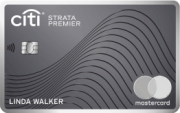The content on this page is accurate as of the posting date; however, some of the offers mentioned may have expired.
A lot more consumers have become concerned with credit card and identity theft, and rightfully so, the Federal Trade Commission has reported that those two issues are the most reported issues. October is Cyber Security Awareness Month which means national attention on the protection of our personal information online. Americans are pretty susceptible to online identity theft and fraud because our credit card system isn’t as advanced as other systems around the world that use technologies like Chip and PIN systems that have microchips that add extra security to normal credit cards. But just because America isn’t completely up-to-date in our credit card security systems, it doesn’t mean that we have to be lackadaisical when it comes to our credit card security. Here are some ways that you can be more vigilant.
First, try and be more vigilant and password orientated. It’s amazing how much information you can keep personal and private by locking it behind a password that no one but yourself knows. Results from a Experian survey revealed that over 50 percent of consumers who responded to the survey, left their personal laptops and cell phones unlocked. Leaving these personal devices unlocked could be a welcome signal for lurking thieves attempting to steal your identity.
Second, be careful of the information that you post online, mainly on social networking sites such as Twitter, Facebook, and MySpace. These websites are a stalkers best friend, as users aren’t aware of how much personal information they are leaking and who is paying attention to their posts. For this reason, be careful about putting your exact birthday, phone number, home address or any information that may be required to unlocking your bank account information.
Next, organize which credit cards you use for which purchases. Unscrupulous merchants and their employees may get your credit card information and do unpleasant things with them. For this reason, you should designate one credit card for restaurant purchases. Restaurants and bars reportedly have the most instances of credit card fraud, as waiters and waitresses often leave eye sight for minutes with your credit card information. In that time, dining patrons may be surprised to know that their friendly waiter may be in the back copying your credit card number, expiration date and security code in order to finance future purchases or to make a duplicate credit card.
Finally, invest in some security tools. There are protection methods out there, and it’s up to you to take advantage of them. A report from Ron Bowes, an Internet security expert found that a staggeringly large amount of people use the word “password” or “123456” as their password for their credit card accounts. Sure, such personal information should be protected with a more complex password. But, start out with making stronger passwords, and you can see some of the security benefits. Also, contact your bank about activating extra security measures. For example, Bank of America has an option where accountholders are notified by text if there are changes to their account. Other identity theft measures include ProtectMyID and other fraud protection services.
More and more purchases are made online, and if you don’t have the ample security, your credit card can be subject to miscellaneous and expensive charges.






